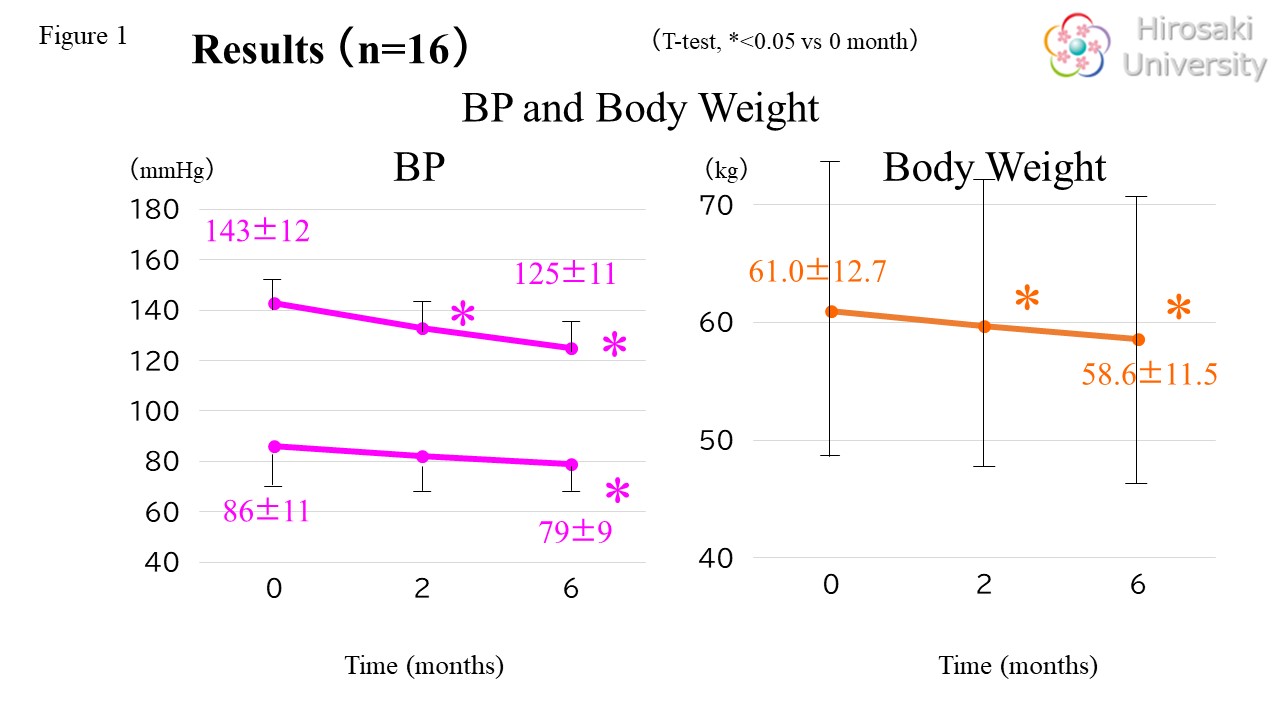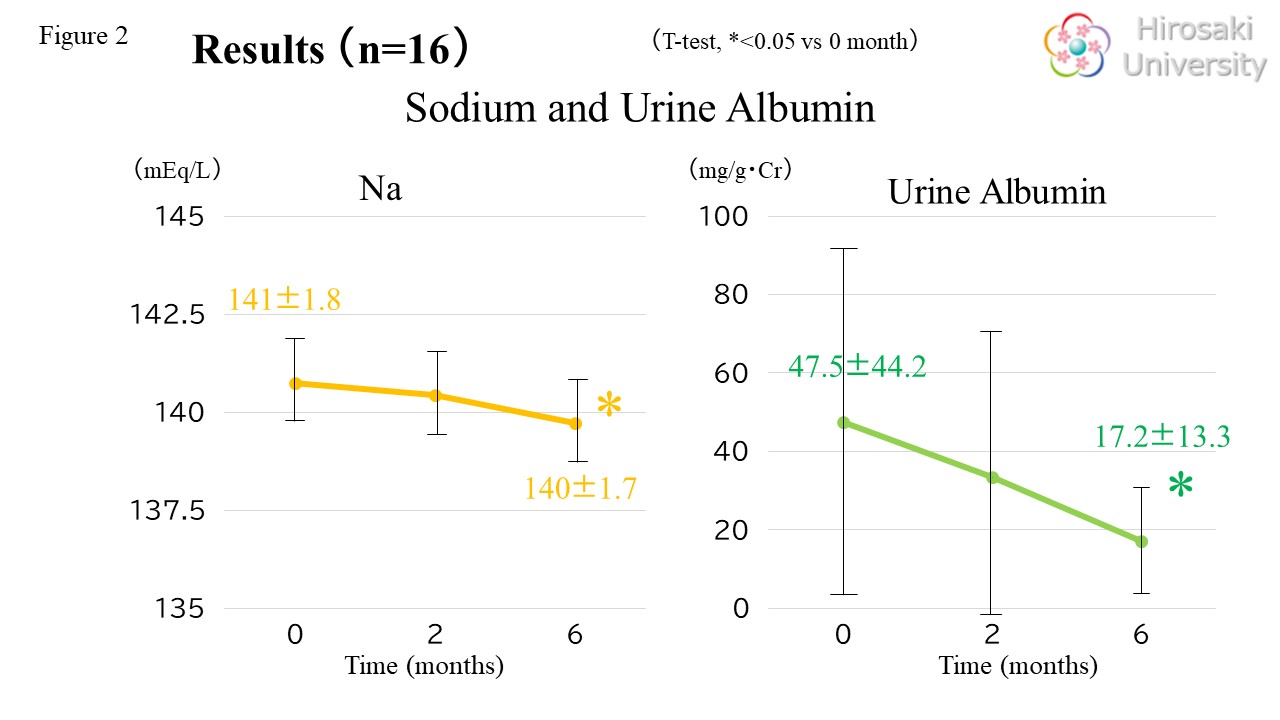Efficacy and safety of 6-month sacubitril/valsartan administration in post-renal transplant patients; possibly contribution to long-term graft survival?
Reiichi Murakami1, Mirei Himura-Nakaya2, Akiko Okita2, Kanako Sekino-Ando2, Atsuro Tazawa2, Daiki Nagawa2, Takeshi Fujita2, Michiko Shimada2, Hirofumi Tomita2, Chikara Ohyama1.
1Advanced transplant and regenerative medicine, Hirosaki university graduate school of medicine, Hirosaki, Japan; 2cardiology and nephrology, Hirosaki university graduate school of medicine, Hirosaki, Japan
Background: Sacubitril/valsartan (SAC/VAL) improved the primary outcome in heart failure patients with lower left ventricular ejection fraction. In this study, we investigated 6-month follow-up of post renal transplant patients who received SAC/VAL for their hypertension therapy.
Methods: This is an observational study which includes 16 post renal transplant patients in our center. Their mean systolic/diastolic blood pressure was 143/86 mmHg, the mean body mass index was 23.6 ± 4.6 kg/m2 and the mean post-transplant renal function was eGFR 38.6 ± 14.2 mL/min. Their laboratory data were compared before and after 2 and 6 months after induction of SAC/VAL, respectively.
Results: Blood pressure and body weight were significantly reduced in a time dependent manner after induction (Figure 1). Add Figure 1 Serum sodium levels decreased significantly also in a time dependent manner (Figure 2). Add Figure 2 Their renal function tests remain stable up to 6 months after induction of SAC/VAL. Although their hemoglobin A1c levels did not change, urine albumin levels were significantly decreased up to 6 months after induction of SAC/VAL (Figure 2).
Conclusion: SAC/VAL is a safe and effective option of hypertension treatment for the post renal transplant patients. Our data also suggested the improvement of urine albumin in them. SAC/VAL has an organ-protective effects by inhibiting neprilysin, one of the main degradation enzymes of the natriuretic peptides. In addition, it might be suggested that SAC/VAL improved long term graft survival of renal transplant recipients by preventing from diabetic kidney disease. Further improvement of the renal transplant outcomes is expected by optimizing administration of SAC/VAL.


[1] Kidney transplantation
[2] albuminuria
[3] hypertension
